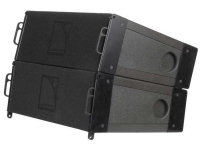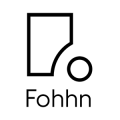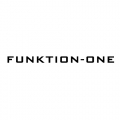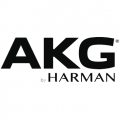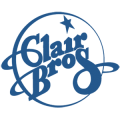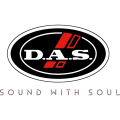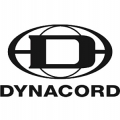dV-DOSC
The small "d" in DOSC refers to the mathematical terminology for the derivative function since dV-DOSC can be considered as a derivative of V-DOSC. dV-DOSC provides the same benefits of Wavefront Sculpture Technology as V-DOSC except in a much smaller format.
We hope this manual will help you to understand the basic theoretical principles behind how the dV-DOSC system works. Understanding these principles will help you to optimally use dV-DOSC and dV-SUB in sound design - whether for touring or fixed installation. Understanding the concepts behind dV-DOSC and Wavefront Sculpture Technology are just as important as learning the many operational details related in this manual - the more you understand the big picture, the more effectively you will use the system.
dV-DOSC is a complete system approach - starting from the basic scientific question of how to effectively couple sound sources then including all aspects of performance prediction, sound design, system installation, rigging, cabling, signal distribution, digital signal processing and system tuning. This turnkey system approach allows for accurate and predictable results, however, in order to achieve the best results you need to understand the theoretical concepts behind how the system works and adopt a methodical approach to sound design and installation. For these reasons, specialized training is necessary to obtain the best results with the system. Some people think that working with dV-DOSC is complicated but once you understand the procedures involved, you save time and - more importantly - obtain better, more predictable results.
Apart from sound quality and the turnkey system approach, there are many other benefits to dV-DOSC. Many readers are already aware of these - if not, they will become apparent throughout the course of this manual.
dV-SUB
The L-ACOUSTICS dV-SUB is the companion subwoofer for dV-DOSC and features three 15-inch transducers loaded in a dual-chamber vented bandpass configuration. With power handling capacity of 1200 and response to 35 Hz, dV-SUB is ideal for applications requiring maximum impact from an extremely compact enclosure.
Important design criteria in the development of dV-SUB were maximum SPL output combined with extension from an enclosure as compact as possible. vented bandpass loading provided the answer. High power handling components also contribute to the SPL performance and since 15`` transducers are operated in parallel this presents an optimum load to the power amplifier. Rigging flexibility was another key consideration and dV-SUB`s integral rigging system allows for the installation of a single column of dV-DOSC and dV-SUB enclosures (with dV-SUB flown at the top of the array and dV-DOSC underneath).
Although deeper than dV-DOSC, dV-SUB has the same width and in keeping with the recommended ratio of 3 dV-DOSC : 1 dV-SUB, enclosure height is equivalent to approximately 3 dV-DOSC. This allows for the creation of physically compact arrays when -SUB is flown on either side of dV-DOSC in a coplanar symmetric arrangement. Either single column or coplanar symmetric configurations can be used in FOH applications for small, medium or large venues and also in large-scale fixed installations such as multiple distributed arrays for stadium or arena sound reinforcement. For theatrical applications, where visually unobtrusive sound design is critical, dV-DOSC plus dV-SUB is ideal for stereo infill (floor), main left/right (balcony) or center cluster use.
The 695 mm (27.4-in) cubic dimensions of dV-SUB are highly convenient for ground-stacked applications where dV-SUB serves as a stacking platform for dV-DOSC.This combination is also ideal for stage monitoring applications such as or drum fill. Presets for use of dV-SUB with the L-ACOUSTICS XT line, 115FM floor monitor and ARCS are also available, offering a wide variety of enclosure combinations.
Professional used lighting equipment.| Professional second hand lighting equipment.| Professional pre owned lighting equipment.
Professional used audio equipment.| Professional second hand audio equipment.| Professional pre owned audio equipment.
Second hand audio gear. | Second hand lighting.
Pro audio equipment, second hand amplifiers, DJ, second hand sound systems, second hand Microphones, second hand Media Players.
Outdoor & Indoor LED screens for sale, LED mobile truck.
Light trussing, Gebrauchte Veranstaltungstechnik, used stage equipment Stage & Theatre lighting products.
Used L-Acoustics
L-Acoustics is a French manufacturer of loudspeakers, amplifiers and signal processing devices for rental and installed sound markets. Headquartered in Marcoussis, just south of Paris, the company has satellite operations in the United States, United Kingdom and Germany, as well as a global Rental Network of production companies deploying and cross-renting its products. The company is also known for providing music festivals with its loud, powerful sounding speakers.In September 1984, Dr. Christian Heil, a physicist in the field of elementary particles with a passion for sound, created an electro-acoustic engineering firm named C.HEIL.TEA, later to be renamed L-Acoustics. In 1989, the company launched its MTD115, a high-performance coaxial loudspeaker for sound reinforcement use.
In 1992, Heil and his team pioneered the field of modern line source array loudspeakers with their V-DOSC system, which benefitted from L-Acoustics’ new Wavefront Sculpture Technology (WST) theory. Based on principles developed by Heil and fellow physics colleague Professor Marcel Urban, WST defined five criteria for design and use of true line source arrays. At the heart of WST is the internationally-patented DOSC waveguide, which was the first high-frequency device capable of creating a rectangular, constant-phase planar output.
In combination with WST, coplanar symmetry - the equivalent of coaxial assembly for HF, MF and LF drivers in vertical arrays - provides a coherent wavefront over the entire horizontal coverage at all frequencies. This behaves as if the sound was radiated by a single, continuous and articulated ribbon, and allows a highly coherent sonic signature in long throw applications, beyond the limits of previously traditional clustered systems.
Although Heil did not invent the underlying theory of the line array, his research and design work that ultimately resulted in the V-DOSC system altered the landscape of loudspeaker design. Today, nearly every professional audio loudspeaker manufacturer has adopted the line array model for their premier touring systems, and Heil is generally recognized as the "father of the modern line array."
Over the years, L-Acoustics has gone on to introduce other products, including the ARCS Constant Curvature Array (1995), dV-DOSC modular line source (1999), Kudo with K-Louver variable directivity (2005), P Series self-powered coaxials (2006), SB28 subwoofer with laminar vents and LA4 and LA8 amplified controllers (2007). The debut of L-Acoustics’ Soundvision simulation software in 2004 enabled system designers to create accurate 3D acoustical models of potential systems using the company’s products.
In 2008, 15 years after the launch of V-DOSC, L-Acoustics introduced its newest flagship system known as K1, designed primarily for large festivals and stadium sound reinforcement applications. Distribution of the earliest K1 systems sold was extremely limited to a small number of touring sound companies that agreed to participate in the manufacturer’s K1/Kudo Pilot Program,[7] providing feedback to L-Acoustics’ R&D team on its field performance.
Since then, the manufacturer has established both its new Rental Network and System Integration Charter, as well as debuted other new products, including the Kara and Kara(i) WST line source enclosures and SB18 and SB18i subwoofers (2010).
The K1 stadium line array system was recognized with the top prize for "Indispensable Technology - Audio" at the 10th annual Parnelli Awards ceremony held at the Rio All Suites Hotel & Casino in Las Vegas on October 22, 2010.
Professional used lighting equipment.| Professional second hand lighting equipment.| Professional pre owned lighting equipment.
Professional used audio equipment.| Professional second hand audio equipment.| Professional pre owned audio equipment.
Second hand audio gear. | Second hand lighting.
Pro audio equipment, second hand amplifiers, DJ, second hand sound systems, second hand Microphones, second hand Media Players.
Outdoor & Indoor LED screens for sale, LED mobile truck.
Light trussing, Gebrauchte Veranstaltungstechnik, used stage equipment Stage & Theatre lighting products.
Efficiency Rating: Level of sound output measured at a prescribed distance with a standard input power. Efficiency rating standard is 1 watt (2.83V at 8 ohms) at 1 meter over a specified frequency range and is measured in decibels.
Equalization: Loosely, any type of relative frequency adjustment. Specifically, the process of changing the frequency balance of an electrical signal to alter the acoustical output.
Equalizer: A component designed to alter the frequency balance of an audio signal. Equalizers may be graphic, parametric, or a combination of both.
Fade: A gradual increase in audio, i.e. a fade-up, or a gradual decrease in audio, i.e. a fade-down.
Feedback: The transmission of current or voltage from the output of a device back to the input, where it interacts with the input signal to modify operation of the device. Feedback is positive when it’s in phase with the input and negative when it’s out of phase.
FM: Frequency Modulated.
Frequency: The number of cycles (vibrations) per second. In audio, audible frequencies commonly range from 20 to 20,000 cycles per second (Hz). In video, frequency is used to define the image resolution. Low-frequency video images depict large objects or images. Higher frequencies depict smaller objects (finer details.
Frequency Response: A measure of what frequencies can be reproduced and how accurately they are reproduced. A measurement of 20 to 20,000 Hz, 3dB means those frequencies between 20 and 20,000 Hz can be reproduced no more than 3 dB above or below a reference frequency level.
Full-Range: A speaker designed to reproduce the full range (20 Hz to 20 kHz) of audio frequencies.
Gain: Increase in level or amplitude.
Gooseneck: This refers to a microphone with a flexible neck that is most frequently attached to a podium or lectern. It is designed to allow the speaker to raise or lower the microphone to a suitable height.
Graphic Equalizer: A type of equalizer with sliding controls that creates a pattern representing a graph of the frequency-response changes. Raising sliders boosts the affected frequencies lowering sliders cuts (attenuates) the affected frequencies.
HDCP: High-Bandwidth Digital Content Protection. Created by Intel, HDCP is used with HDTV signals over DVI and HDMI connections and on D-Theater D-VHS recordings to prevent unauthorized duplication of copyright material.
HDR: Hard-Drive Recorder. Device that uses a computer hard drive to store compressed digital audio and video signals.
High Pass: A filter that passes high frequencies, and attenuates low frequencies. Same as low cut.
Hz: Hertz or cycles per second. Something that repeats a cycle once each second moves at a rate of 1 Hz.
Incue/Inq/In-Point: These words all refer to the initial few seconds of audio signifying the beginning of the production.
Integrated Amplifier: A combination preamp and amplifier.
Impedance: A measure of the impediment to the flow of alternating current, measured in ohms at a given frequency. Larger numbers mean higher resistance to current flow.
KHz: Kilohertz or one thousand Hz.
Lavaliere: A small microphone that attaches to clothing, allowing the speaker to have a hands-free presentation.
Line Array: A group of speakers that have been arrayed or "built up" in the vertical or horizontal plane, which allow for a highly consistent sound field. A Line Array is perfect for medium to large audiences.
Line-Level (Low-Level): A level of electrical signals too low to make the average speaker move sufficiently. Amplifiers receive line-level signals and amplify them to speaker level.
lockout: The final words of a segment used to signify the production’s conclusion.
Low Pass: A filter that lets low frequencies go through but doesn’t let high frequencies go through. Same as high cut.
MHz: Megahertz, or 1 million Hz.
Midbass: The middle of the bass part of the frequency range, from approximately 50 to 100 Hz (upper bass would be from 100 to 200 Hz). Also used as a term for loudspeaker drivers designed to reproduce both bass and midrange frequencies.
Midrange: The middle of the audio frequency range. Also used as a term for loudspeaker drivers designed to reproduce this range.
Mixer: This is the unit in which audio signals are directed from. A mixer provides for both mic and line input combinations while allowing you to control one or more outputs.
MLP: Meridian Lossless Packing. Encoding format that is able to completely reconstruct the original signal at the receiving end. No information is lost or discarded, regardless of how trivial it might be. Used to encode six channels of high-resolution audio on DVD-A.
Mono: Monophonic sound. One channel.
MP3: MPEG-1 Audio Layer-3. Compression scheme used to transfer audio files via the Internet and store in portable players and digital audio servers.
Natural Sound (NATS): The nonverbal audio that occurs in a non-studio setting. NATS can be used to help characterize the setting.
Noise: An unwanted portion of a signal such as hiss, hum, whine, static, or buzzing.
Nonlinear Editing: Digital audio systems that allow for clips to be extracted without affecting the master recording.
Professional used lighting equipment.| Professional second hand lighting equipment.| Professional pre owned lighting equipment.
Professional used audio equipment.| Professional second hand audio equipment.| Professional pre owned audio equipment.
Second hand audio gear. | Second hand lighting.
Pro audio equipment, second hand amplifiers, DJ, second hand sound systems, second hand Microphones, second hand Media Players.
Outdoor & Indoor LED screens for sale, LED mobile truck.
Light trussing, Gebrauchte Veranstaltungstechnik, used stage equipment Stage & Theatre lighting products.

